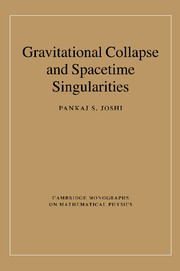1 - Introduction
Published online by Cambridge University Press: 15 August 2009
Summary
Gravitation theory and relativistic astrophysics have gone through extensive developments in recent decades, following the discovery of quasars in the 1960s, and other very high energy phenomena in the universe such as gamma ray bursts. Compact objects such as neutron stars and pulsars also display intriguing physical properties, where the effects of strong gravity fields are seen to play a fundamental role. When the masses and energy densities involved in the physical phenomena are sufficiently high, as is the case in the situations above, it has become increasingly clear that the strong gravitational fields, as governed by the general theory of relativity, play an important and much more dominant role. This gravitational dynamics must be taken into account for any meaningful description of these observed ultra-high energy objects.
A similar situation involving very strong gravitational fields, and which may be connected to some of the above phenomena, is that of a massive star undergoing a continual gravitational collapse at the end of its life cycle. This happens when the star has exhausted its nuclear fuel that provided a balance against the internal pull of gravity. This phenomenon, dominated essentially by the force of gravity, is fundamental to basic theory and astrophysical applications in blackhole physics that have received increasing attention in past decades, and also in cosmology. In the past two decades, there have been extensive investigations of gravitational collapse models within the framework of Einstein's theory of gravity, and these have provided useful insights into the final fate of a massive star.
- Type
- Chapter
- Information
- Publisher: Cambridge University PressPrint publication year: 2007



